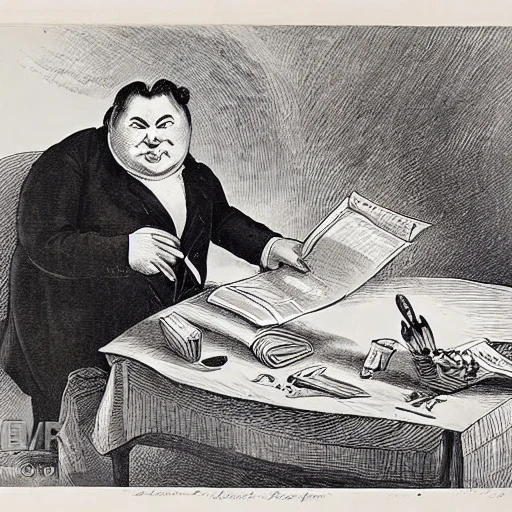- 18
- 25
The big economic story of 2023 was that inflation cooled off. The latest inflation numbers, released Thursday, showed that prices rose 0.3% in December, and were up 3.4% for all of 2023, down from 6.5% in 2022. And while the current inflation rate is still well above the Federal Reserve's target of 2%, it was cut almost in half last year, even as the U.S. economy has continued to grow, and unemployment has stayed below 4%.
Don't expect Americans to celebrate, though. They're still deeply dissatisfied with the economy, in large part because they are unhappy with the fact that even as inflation has come down, overall prices are still almost 20% higher than they were four years ago. In a Morning Consult poll from late November, more than half of those surveyed said they were "very concerned" with inflation. And in a recent Blueprint/YouGov poll, 64% of registered voters said that what they would most like to see improved in the economy was "lower prices."
In other words, even though we have disinflation (a decline in the rate at which prices are rising), what consumers want is deflation: for prices to drop. As Lisa Cook, a member of the Federal Reserve's Board of Governors, put it recently, "They want prices to be back where they were before the pandemic." In fact, consumers want it so badly that according to that Morning Consult poll, 63% of those surveyed said they would prefer that prices go down rather than that personal income go up.
The desire for lower prices is understandable and unsurprising: No one likes paying 20% more for the exact same product or service. But the truth is that if we actually did get economy-wide deflation, the cure would be worse than the disease.
That's because in our current economy, the only thing that could cause a meaningful and widespread drop in prices would be a cratering of demand, of the kind you see during massive economic downturns. If businesses were to stop investing and consumers were to stop spending, companies would probably slash prices in an effort to keep sales up. But we'd also see economic growth plummet, unemployment soar, and wages drop. That would be a bad trade.
Deflation would also likely make the economic downturn worse. When prices are falling, it makes sense to hold off on purchases or investments, since you know that you'll be able to buy or invest at a cheaper price down the road. So falling prices typically exacerbate the problem of weak demand, making it harder for the economy to get out of its recessionary spiral. That's what happened in Japan in the 1990s, when the collapse of a stock-market and real-estate bubble led to chronic deflation and a decade of economic stagnation.
To be fair, there are rare circumstances in which deflation and economic growth can go together. If the value of a country's currency rises sharply, goods and services can become cheaper without dinging economic growth. (Switzerland saw this happen from 2012 to 2016.) And rapid technological growth that dramatically expands a country's productive capacity can also result in lower prices and strong growth.
Neither of those situations, though, is relevant to the American economy today. In fact, since the turn of the 20th century, the only times our economy has seen sustained and meaningful deflation has been during disastrously bad recessions, including the downturn of 1920-1921 and, most obviously, the Great Depression. Between 1930 and 1933, prices dropped by an average of almost 7% a year (which is roughly what we'd need to get prices back to where they were before the pandemic). But that only happened because over that period the U.S. economy shrank by 25%, while unemployment hit 24.9%.
When people say they want lower prices, what they mean is that they want lower prices while their incomes stay the same. But what history tells us is that what we'd get instead is lower prices and higher unemployment, lower wages, and a shrinking economy.
What the economy needs, then, is not deflation. Instead, it needs inflation to stabilize at a manageable rate (which seems to be happening). And it needs real wages and salaries (that is, incomes after inflation) to rise. That's been happening for roughly the past year, with wages and salaries outpacing inflation to the point that according to Arin Dube, an economist at UMass-Amherst, average real wages are now higher than they were before the pandemic.
So far, the drop in inflation and the increase in real incomes hasn't made people feel buoyant about the economy. Some of that is because if we get a raise, we tend to explain it as the result of our own effort and merit, rather than the product of a strong economy and tight labor market. And some of it is because the impact of high inflation lingers long after prices stabilize.
Over time, though, if real wages keep rising, people will eventually adjust, since what really matters is not what something costs, but whether you can afford it. And there is, in any case, no better alternative. Having lower prices across the board sounds great in theory. But it would look very ugly in practice.
!chuds !nooticers another journo banger
- 3
- 15
Let’s drop the lie of Thanksgiving and begin a Truthsgiving:https://t.co/j44kxDVn4v
— The Nation (@thenation) November 20, 2023
Truth is I'm racist
AAAAAAAAAAAAAAAAAAAAAAAAAA AAAAAAAAAAAAAAAAAAAAAAAAAA AAAAAAAAAAAAAAAAAAAAAAAAAA AAAAAAAAAAAAAAAAAAAAAAAAAA AAAAAAAAAAAAAAAAAAAAAAAAAA AAAAAAAAAAAAAAAAAAAAAAAAAA AAAAAAAAAAAAAAAAAAAAAAAAAA AAAAAAAAAAAAAAAAAAAAAAAAAA AAAAAAAAAAAAAAAAAAAAAAAAAA AAAAAAAAAAAAAAAAAAAAAAAAAA AAAAAAAAAAAAAAAAAAAAAAAAAA
- 11
- 37
Also Glenn Verdevaldo (Greenwald) defends Rocket daddy  proving his BDT (Bolsonaro Derangement Syndrome) is not as severe as that of Brazilian journos and leftoids who applaud STF justice Alexandre de Moraes (who's probably the most despicable and repulsive person in the judiciary right now).
proving his BDT (Bolsonaro Derangement Syndrome) is not as severe as that of Brazilian journos and leftoids who applaud STF justice Alexandre de Moraes (who's probably the most despicable and repulsive person in the judiciary right now).
To give Burgers some idea, imagine if Sonya Sotomayor was given powers to supervise the elections. Then Sotomayor would proceed to ban social media accounts because of le fake news, all by herself without needing to consult with fellow justices, plus ordering arrests under pretexts of attacking democratic institutions online.
- 12
- 51
orange websight: https://news.ycombinator.com/item?id=39129367
because when i think quality journ*lism i think sports illustrated
- 7
- 20
REPORTER TO HUNTER: “What kind of crack do you normally smoke Mr. Biden?” pic.twitter.com/p9ogA9LHLZ
— Daily Wire (@realDailyWire) January 10, 2024
Kill me pls
- 2
- 20
- 9
- 21
"I feel UNBELIEVABLY betrayed by feminism": 38-year-old journalist posts video about regretting her "selfish, me-focused life" after putting off kidshttps://t.co/PxbWIAMFrZhttps://t.co/PxbWIAMFrZ
— Not the Bee (@Not_the_Bee) December 11, 2023
- 35
- 81
When 2,529 people were offered a free subscription to their local newspapers, the Pittsburgh Post-Gazette and the Philadelphia Inquirer, only forty-four accepted—less than 2 percent—according to an academic study set to be published this year in the American Journal of Political Science.
Dan Hopkins, a political science professor at the University of Pennsylvania, conducted the study, titled “Unsubscribed and Undemanding,” in 2021. The purpose of the research, Hopkins said, was to assess practical ways to increase interest in local or regional news for an audience that seems more interested in national, partisan media outlets. (The pool of those offered subscriptions was made up of locals who had previously responded to political surveys.) Hopkins said that he was “surprised and dismayed” when he realized that only 1.7 percent had accepted the free subscription.
The findings add context to what has been a difficult start to 2024 for American media. There have been hundreds of layoffs across the industry—the Washington Post, Wall Street Journal, Los Angeles Times, Sports Illustrated, and Business Insider, among others, have all downsized. At the local level, half the counties in America have either one news outlet or none at all, according to Medill's 2023 State of Local News Project. Of those counties, over two hundred are “news deserts,” without any local media whatsoever.
Hopkins conceived the study after writing a book in 2018 on the nationalization of American politics. In The Increasingly United States he argues that declining interest and access to local news forces voters, who are not otherwise familiar with the specifics of their local governments' agendas or legislators, to default to national partisan lines when casting regional ballots. As a result, politicians are not held accountable, voters are not aware of the issues, and the candidates who get elected reflect national ideologies rather than representing local needs.
Hopkins and his coauthor Tori Gorton sent the free-subscription offers on postcards in the mail and targeted social media messages over the spring and summer of 2021. They ran a parallel study in which they determined the level of engagement with free local news stories (mostly about COVID) on social media. Some of the responses made clear that there were strong feelings at play.
One returned an invitation to subscribe to the Post-Gazette with a message: “[t]he P-G is an awful newspaper run by horrible bigoted people.” Other comments collected from the social platforms read: “no thanks! Fake News” and “GOTTA BE BAD FOR THE MEDIA WHEN YOU CAN'T GIVE THE CRAP AWAY.”
Neither paper has yet covered the study in its own pages. The Post-Gazette did not respond to requests for comment. Evan Benn, the senior director of special projects at the Inquirer, told CJR that the study was a welcome chance to gain insight into potential subscribers looking for local news, especially given that a grant from the University of Pennsylvania covered the cost of the subscriptions. He declined to respond on the record to the substance of the findings.
Hopkins did not find an obvious solution to the problem. “It is easier, as a researcher,” he said, “to study why things have changed than how to push in the opposite direction.”
- CREAMY_DOG_ORGASM : I'll reveal a really funny comment in this thread if you buy me an unban award please
- 25
- 103
New data has revealed 1 in 3 women find it a massive “turn off” when a potential partner takes zero interest in current societal issues.
While 1 in 4 people state having a partner that actively engages with politics and social causes makes them “more attractive”.
so 2/3 women are fine with grillchads and 3/4 of people do not care about your politics 
- 4
- 15
Here is the link if you feel like giving them clicks 
Thank god we have these articles. I can't wait for the next article where they interview some Urologists to teach me how to bust a nut 
- 6
- 11
1k DC for a good banner and I'll mod you.
100 DC for a good sidebar. Kinda poor right now so it's cheap work for a good cause.
- 10
- 18
From @WSJopinion: Taylor Swift brings joy, jobs and happy feet everywhere she goes. She’s the best thing happening in America, writes @Peggynoonannyc. https://t.co/FkFzGsz1Ii
— The Wall Street Journal (@WSJ) November 25, 2023
- 8
- 36
That it's somehow improper, let alone "maddening," for a journalist to interview a world leader -- especially one we're told we must finance a war against -- is the sort of thing no real journalist would think.
— Glenn Greenwald (@ggreenwald) February 6, 2024
They deserve all the contempt they get:https://t.co/QOlJfh8ZKc
- 4
- 16
- 25
- 74
NEW YORK (AP) --- On Friday, the National Press Club is offering solace --- and a free meal --- by giving recently laid-off journ*lists tacos in recognition of a brutal stretch that seems to offer bad news daily for an already struggling industry.
For anyone who works in the news media, the list is intimidating --- and unremitting.
The news website The Messenger folded on Wednesday after being in operation since only last May, abruptly putting some 300 journ*lists out of work. The Los Angeles Times laid off more than 100 journ*lists in recent weeks, Business Insider and Time magazine announced staff cuts, Sports Illustrated is struggling to survive, the Washington Post is completing buyouts to more than 200 staffers. The Post reported Thursday that The Wall Street Journal was laying off roughly 20 people in its Washington bureau; there was no immediate comment from a Journal representative. Pitchfork announced it was no longer a freestanding music site, after digital publications BuzzFeed News and Jezebel disappeared last year.
And journ*lists at the Los Angeles Times, the Washington Post, New York Daily News and the Conde Nast magazine company have all conducted walkouts to protest how management was dealing with business problems.
All this is taking place as the overall jobs outlook in the nation gets stronger. U.S. employers began 2024 by adding 353,000 jobs in January --- a striking spate of hiring. A government report Friday showed that last month's job gain --- roughly twice what economists predicted --- topped the December gain of 333,000.
Not so the news industry. Seeing all the damage is what led to the Washington-based National Press Club to open its weekly Taco Night to laid-off colleagues and offer a one-month free membership to people who need a networking opportunity.
"It's very important when people have lost their jobs to know that they have some support behind them," said Didier Saugy, the club's executive director.
THIS IS NOT A NEW ISSUE
The news business has been in a free fall for the past two decades, starting when much of its advertising moved online to opportunistic tech companies. Advertising is still a huge part of the problem, although there are more complex reasons and circumstances unique to individual outlets that also play a part.
The situation is dire at larger, more national organizations and in smaller communities. A Northwestern University study released in November estimated the United States has lost one-third of its newspapers and two-thirds of its newspaper journ*lism jobs since 2005.
The nation loses 2.5 newspapers per week --- a pace that is accelerating, the study found. Through the end of November, the employment firm Challenger, Gray and Christmas estimated 2,681 journ*lism jobs were lost in 2023, and that tally has increased by hundreds since.
One industry observer, Jeff Jarvis, wondered on his Buzzmachine website this week: "Is it time to give up on old news?"
"There's an inevitability to what is happening," Jarvis, author of "The Gutenberg Parenthesis: The Age of Print and its Lessons for the Age of the Internet," said in an interview. "Publications have been trying to preserve their old ways and their old models, and it is time for them to realize that it's not working and now it's too late."
While there have been some successes in news outlets shifting their business to paid digital subscriptions --- most spectacularly at The New York Times --- failures are much more numerous. Even The Washington Post, whose subscriptions boomed during the Trump administration, has seen a falloff, leading its management to acknowledge that it was too optimistic in expansion plans and needed to cut costs.
Optimism created by billionaire owners at the Post, with Jeff Bezos, and Los Angeles Times, with Patrick Soon-Shiong, has faded as it became apparent they didn't have magic fixes. With COVID and the Hollywood strike constricting the advertising market, the Los Angeles Times estimated it was losing between $30 million and $40 million a year.
Philanthropy has offered a boost to some news organizations, including The Associated Press. The MacArthur Foundation and Knight Foundation last year pledged $500 million to seed solutions in the news industry, but such efforts can't match the scale of the problem, Jarvis said.
"The industry," he said, "leaps from false messiah to false messiah."
Tech companies are also backing away from news, said Aileen Gallagher, a Syracuse University journ*lism professor. Through its AI-powered search generative experience, Google is much less frequently directing users to individual news sites, she said.
Publishers have also complained of losing significant business with Facebook much less frequently featuring news articles that bring people to news sites. Twitter, now X, was once like a second home to journ*lists, but that's become much less the case since Elon Musk's purchase of the site.
"What the news companies may have finally woken up to is that nothing good will come from accepting the scraps that social platforms and search platforms will give the news business," Gallagher said.
The 2020 election proved a boon for many news outlets, but there are questions about whether the public will have as much interest in following political news this year.
THE PATH FORWARD IS JUST AS BUMPY
Some of the troubled outlets also have unique issues that contributed to their problems. Sports Illustrated sent layoff notices to employees after the company that publishes its content lost its license to do so. The Messenger's failure angered observers because its business plan --- a centrist website that tried to appeal to many instead of a tightly-defined audience --- was an uphill battle to start.
"It was business malpractice and human cruelty at an epic scale," Jim VandeHei, co-founder of Axios and Politico, told the Puck newsletter. "Anyone who knew anything about the economics of media knew it would die quickly, spectacularly and sadly."
That sadness is apparent in messages left on social media by laid-off journ*lists from The Messenger and elsewhere.
"I was laid off from my political writing job back in August and haven't been able to find another one since," wrote Tara Dublin, author of "The Sound of Settling: A Rock and Roll Love Story," on X. "I am terrified about the future of journ*lism and how anyone is going to be able to trust any news source."
Steve Reilly, an investigative reporter at The Messenger who saw his job disappear this week, wrote: "If you've been affected by recent journ*lism layoffs at the Messenger or elsewhere, please know that it is not your fault. It has nothing to do with you or your work."
On Thursday, former employees of The Messenger filed a class action lawsuit in U.S. District Court in New York against the company, saying they hadn't been given the required notice of termination.
Jarvis, who also teaches journ*lism, said he doesn't pretend to know the answers. He said there needs to be an attitude change from searching for a way to monetize content to seeing journ*lism as a service to the community.
"We need journ*lists in society, and we will find a way to fill that need," he said. "I'm optimistic in the long run. But in the short run, it's going to be ugly."
- 44
- 78
this is on the NYT front page today pic.twitter.com/xzD4YElUNn
— normality (@getnormality) January 23, 2024
- 52
- 70
Once when I was a kid I happened upon a dead frog on a trail in the woods. I flipped it over and was horrified to see worms burrowing in its entrails. For some reason that same feeling of horror, pity and disgust surfaces in me whenever I read this dude's tweets
— Lo-fi Republican (@LoFiRepublican) January 26, 2024
















 Journos cream their pants
Journos cream their pants 








 I'm like a dog chasing waterfalls
I'm like a dog chasing waterfalls






 38 yo women journ*list no kids
38 yo women journ*list no kids 






.webp?x=8)








 House boomer
House boomer  | Discordmisic
| Discordmisic 
 |
|
 to tech you the obscure science of --
to tech you the obscure science of --  -- petting dogs
-- petting dogs 
























